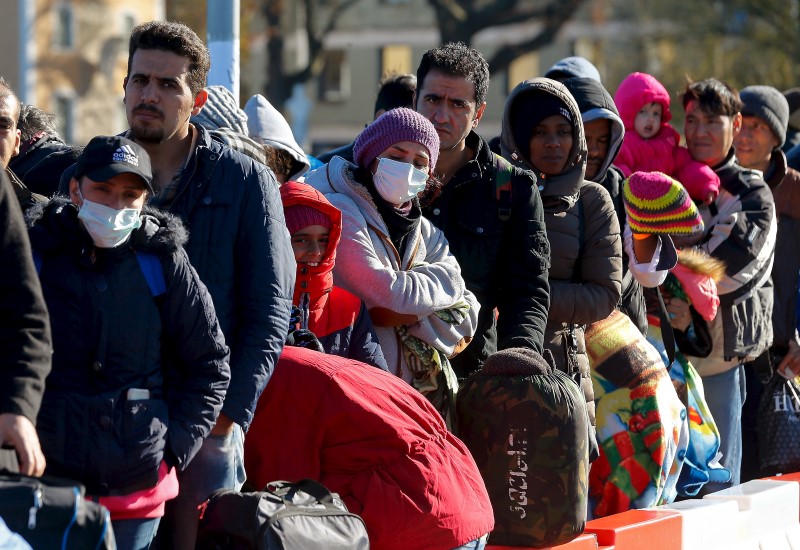By Klaus Lauer
BERLIN (Reuters) - Germany's Mittelstand, the small and medium-sized companies seen as the backbone of Europe's biggest economy, are optimistic about next year but say 2015's huge influx of refugees will not solve their shortage of skilled labour.
A survey by BVMW Mittelstand association published on Tuesday showed that 63 percent of the 2,400 firms questioned viewed their business situation as good or very good, and that some 38 percent expect to post higher revenues in 2016.
"Despite a globally difficult situation, firms are heading into the new year with optimism," BVMW President Mario Ohoven told reporters.
More than 87 percent of small and medium-sized firms said they had trouble filling vacancies.
Yet almost 70 percent think it unlikely or impossible that the influx of about a million refugees this year would help solve the labour problem.
In addition, 47 percent did not agree with Chancellor Angela Merkel's mantra that Germany would cope with the wave of people seeking asylum, many from war zones in the Middle East and Africa. Local authorities are struggling to house and care for the arrival of so many refugees.
Around one third of the companies aimed to invest more next year than in 2015, the survey showed.
Although the term is loosely defined, the Mittelstand comprises about 3.6 million businesses, often family-run, which together employ more than half of Germany's working population and create half the country's economic output.
A separate survey by the Ifo institute on Monday said German industrial companies plan to increase their investments by 6 percent in 2016..

The finance ministry said this month it expects the economy to continue to expand in the last quarter of 2015, driven by upbeat business sentiment and a stable labour market, despite a slowdown in emerging markets which may dampen exports next year.